Android Phone Fans |
- Chrome for Android to finally get password sync soon
- HTC Mini is a mini phone… for your smartphone [VIDEO]
- US Cellular to sell the Samsung Galaxy Note 10.1 soon
- Bid farewell to the Verizon Galaxy Nexus
- Google Glass audio to be delivered through “headphoneless” headphones?
- White House petition started to combat phone unlock law
- Google holding Project Glass Developer Conference attendees to strict NDA
- Nexus 4 again out of stock at T-Mobile
- HTC debuts Desire U for China and Taiwan
- More Note 8.0 pictures show off S Pen support
- Samsung announced rugged Galaxy Xcover 2
- LifeKraze lets you earn points and rewards for completing everyday tasks
- AT&T adds 780,000 subscribers in Q4
| Chrome for Android to finally get password sync soon Posted: 25 Jan 2013 03:27 PM PST One thing holding many people back from switching to Google Chrome for Android is the absence of password synchronization. Folks wouldn’t be as peeved as they are if the feature wasn’t already available in the iOS version of the browser, but when Google’s own operating system doesn’t get the same tender love and care as its biggest competitor you begin to wonder what gives. Well, following Google’s explanation that it takes more work and time to implement the feature in the Android version due to the way user accounts work in the OS, we finally have word that the feature is being worked on and should be in a beta build near you soon. New code has been committed to the Chromium project that will finally allow us to sync our passwords to our Android devices. With everything drawn up and ready to go, we should be seeing this feature in a beta channel update at some point in February, though it’s not wise to hold us to that estimation. Regardless of when the exact landing date is, though, we’re excited to see Chrome for Android making progress and getting one of the most important features for those of us who take password management seriously. This saga makes us wonder if Google can eventually reach its goal of wanting to get Chrome on all platforms synced up on the development cycle. If it takes Google months longer to implement a feature in one version of an operating system opposed to another then it can’t guarantee that each platform will be updated at the same time. Not all features will have to lag as far behind as password sync did, but Google’s desire to “do it right” for each individual platform will keep it from being able to get a more uniform update schedule going. Unless you want development on other platforms to be held back for the sake of identical updates and feature sets, this is something we’ll have to deal with for the time being. But don’t let my Debbie Downer commentary deter you from the excitement this news should bring — go nuts and celebrate! [via Google Code, Chromium, thanks PhaseBurn!] |
| HTC Mini is a mini phone… for your smartphone [VIDEO] Posted: 25 Jan 2013 02:37 PM PST The folks at HTC realize that some people aren’t comfortable with using a huge phone. With the explosion of the “phablet” market in recent months, many folks are steering well clear as they fear that holding a 5+ inch slate up to their heads will make them look more ridiculous than a bear dressed up in a cowboy outfit. Well, in order to make the HTC J Butterfly, the international version of the DROID DNA, more attractive to those who prefer to talk on smaller devices the OEM has started offering the HTC Mini. It’s a small, NFC-equipped Bluetooth handset that is meant to accompany your smartphone. It’s built like an ordinary cordless candybar phone that you might find inside a home, but it’s actually just a glorified Bluetooth handset. Some people might not think it makes much sense to carry yet another deice to solve the problem of the original being too cumbersome, but if you simply want something more comfortable to fit into your jeans while the phone sits inside a bag or purse then I guess this is for you. Unfortunately it looks like the device is exclusive to China for now, but hopefully it gains enough traction and attention to get HTC to offer it in all markets. It sounds as if HTC’s willing to bundle these with the purchase of new units instead of requiring separate purchases, so if you happen to be in the market for a a J Butterfly in the near future then you might as well ask about how you can get one of these to go along with it. You might not be able to understand everything in the video above, but it’s easy enough to follow along — hit the play button and give it a quick viewing. [via MicGadget] |
| US Cellular to sell the Samsung Galaxy Note 10.1 soon Posted: 25 Jan 2013 01:56 PM PST The ninjas at US Cellular seem to have confirmed that the regional carrier would soon be carrying the Samsung Galaxy Note 10.1. It’s a bit odd to see a device pop-up on a carrier’s website with a formal announcement from them, but that is exactly what has happened here — you can see for yourself right here, if you care. Unfortunately we don’t have any information in regards to when we can expect it, but it looks like the usual price of $499.99 with instant rebates will hold. It’s also worth noting that this early listing doesn’t make mention of any 4G LTE radios inside of the tablet, but evidence does exist suggesting US Cellular will introduce a model with radios compatible with its high speed wireless data network. Another unfortunate element of the spec sheet is the inclusion of Android 4.0 Ice Cream Sandwich. As we know, Samsung has started the Jelly Bean rollout for the WiFi version of the Note 10.1, and it brings with it some much needed performance enhancements and improvements. We’d hoped any new editions of the tablet coming out would come with the update out of the box, but unless this is just outdated information then that doesn’t look to be the case here. Still, it wouldn’t be a bad purchase for anyone looking for a data-enabled tablet to haul around. It features a quad-core 1.4GHz processor, 2GB of RAM, 16GB of internal storage, a 10.1 inch Wacom-enabled display with S Pen support and more. We’ll be reaching out to US Cellular to find out when, exactly, we can expect this device to hit, and if 4G LTE will eventually be coming along for the ride. [via Unwired View] |
| Bid farewell to the Verizon Galaxy Nexus Posted: 25 Jan 2013 01:27 PM PST Welp, folks, the ride is over. The Verizon Samsung Galaxy Nexus — the first of its kind, in fact — has finally reached end-of-life status. The Galaxy Nexus was the third Nexus device to grace the airwaves of the world, but it was the first Nexus device Verizon decided to try its hand at. While that hand was very far from perfect, the device was still decent success for the carrier and it made folks hopeful for the future of truly open devices on Big Red’s network. Unfortunately, a few glaring issues plagued its existence. For starters, because Verizon’s LTE technology was proprietary Google was forced to go through their pipeline for firmware updates. The promise of a Nexus device was always that users would get updates fast and first, but updates for Verizon’s version were delayed weeks and months at a time due to the testing and certification process they have to go through. While those of us keen on rooting and ROM’ing devices didn’t have much of an issue with that, it’s clear to see why others didn’t take quite as kindly. Another big bruise on an otherwise attractive package was Verizon’s need to control access to the device’s secure element. The NFC chip housed the element, and it’s something that is needed in order to allow full access to Google Wallet’s NFC payment features. For some reason, Verizon wouldn’t let Google — of all people — get that deep. This obviously led many to believe Verizon simply didn’t want Google Wallet competing with its own payments solution ISIS, as the latter continues to be the only service with access to the secure element. It’s hard to say how Google felt about the way Verizon handled the Galaxy Nexus without being able to sit in on those uber private board meetings and conference calls, but we imagine it left a very sour taste in the search giant’s mouth. The future of the Nexus brand on Verizon is uncertain as a result, and although it looks like the carrier might still be getting a Nexus-esque phone (if recent Motorola X rumors are to be believed) it still won’t quite be the same. The Verizon Galaxy Nexus will live on through sites like eBay and Craigslist and will continue to be backed by the most passionate development community there is, but don’t expect to walk into a Verizon store and see it paraded around any longer. [Verizon via Droid-Life] |
| Google Glass audio to be delivered through “headphoneless” headphones? Posted: 25 Jan 2013 12:59 PM PST Google’s Project Glass has been an interesting thing to follow. We first heard about the wearable technology back at Google I/O last year, and while the company’s initial vision was little more than a concept at the time, it has come a long way. We haven’t seen a huge influx of actual use cases outside of taking photos/video and sharing them to Google+ just yet, but perhaps all of that will change once Google holds its private developers’ event (though, considering those attending will be under strict NDA we might not hear about anything that will be discussed at the workshop). Since then, many different patents have been uncovered to give us an idea of what kind of features Google might look to add between now and whenever these things are ready for retail. One such patent was a laser-projected keyboard that might allow someone to type or dial a phone number by manipulating a virtual keyboard on their hand. It sounds crazy, but projected keyboard technology already exists and it’s not outside the realm of possibility. Another very interesting patent has been uncovered as of late in regards to Google Glass — “headphoneless” headphones. This patent, filed in October 2011, describes a system where a built-in vibration transducer will be used to create an indirect bone conduction speaker. In English, this means that a vibration motor within the frames of the glasses resting on a bone just in front of your ear could be used to send audio signals straight to your inner-ear. This sort of tech would solve the issue of audio for the purposes of, say, a phone call or listening to turn-by-turn walking directions without having to wear actual earphones or make use of a privacy-killing external speaker. The easy way out would be to use frame-mounted ear buds, but it sounds like Google really wants this tech to be the 9th wonder of the world. Whether or not something like this ends up making it into Google Glass is still up for debate, but the existence of such a patent lets us know that Google’s at least thinking about it, and that’s all that we need to get excited. We’re expecting Google to give us an update on the project at Google I/O in May — which we’ll be on hand for, of course — and we’re still trying to see if we can deliver any updates to you guys from the developer workshop taking place next month. Either way, Google’s looking to drop quite the bombshell in 2013 and you can bet we’ll be smack-dab in the center of the blast radius to absorb all the exciting bits we can. [USPTO via Patent Bolt] |
| White House petition started to combat phone unlock law Posted: 25 Jan 2013 12:00 PM PST Did our story regarding the Library of Congress’s revision to the DMCA law to make the unlocking of phones illegal put a bad taste in your mouth last night? Well, here’s a bit of toothpaste to try: why not petition the White House to see what their stance on the matter is and if they’d be willing to do anything about it? A petition was set up on the new White House Petition site, a tool that the current administration has given the American people to make their voices heard. The difference between this petition and the thousands you see on, say, Change.org is that the White House administration has promised an answer to any legit petition that has a certain number of digital signatures. This particular petition was made while the threshold was 100,000 signatures, and it has about 5,200 as of the time of this writing. This promise was tested a short while ago with the request that a death star be built — and, sure enough, the White House did respond in quite the geeky nature. I should note that even if the petition does make it to 100,000 signatures it doesn’t mean anything is guaranteed to change. All this guarantees is a response, but sometimes even that is more valuable than nothing at all. We’d love to see this law be abolished in the very near future. The Library of Congress might not have totally ill intent, but in a time where cellular carriers already have a bit too much control on their side it’s easy to understand why users would be upset. Anyone from the likes of Canada, Europe and Australia would come to America and gag at the wireless practices in this country. Between high contract prices, overpriced rate plans and an absolute mess of a spectrum and technology situation you might liken the scenario to a bad Steven Seagal flick — sure, the characters and plot (phones and LTE) look nice, but at the end of the day the star of the show is a flabby old man past his prime (carriers) with below average acting skills still trying to pretend that he knows martial arts. Enough of my blabbering, though — go ahead and sign that petition, and let’s see if we can’t get someone from the White House to explain to us why carriers are afforded yet another thumb to pin us down with. Head here to get started. |
| Google holding Project Glass Developer Conference attendees to strict NDA Posted: 25 Jan 2013 11:33 AM PST
If Google pulls any big surprises at next weeks Project Glass Developer Conference, we won’t be hearing about them. Google is holding all attendees to the strictest of non-discolure agreements, asking that anything learned as part of events occurring in New York and San Francisco not be made known to the general public. To accomplish this, Google is requiring all registered developers to use special Google+ accounts to test the features of the Android-powered glasses, lest they post anything to their personal profiles. Any photos or video captured at the event become the property of Google, as the agreement states that those in attendance “waive any moral rights you have and agree not to exercise them.” But it does sound like developers will be able to take home their Glass preview units based on certain language in the agreement. A disclaimer warns of the dangers of using Glass during real world activities such as driving or playing sports. Phandroid registered several member of our staff, including our lead developer, for the Glass Explorer program. We have contacted Google for further clarification on the NDA in relation to media coverage of future Glass events. [via Mashable] |
| Nexus 4 again out of stock at T-Mobile Posted: 25 Jan 2013 07:41 AM PST
The Nexus 4, which only recently went back on sale via T-Mobile’s online store, is once again out of stock through the carrier’s web portal. The quickly sell out can no doubt be attributed to voracious Android fans looking to get their hands on the notoriously hard to find device. While the Nexus 4 wasn’t anticipated to sell near the level of phones like the Galaxy S3 and iPhone, it is clear that LG and Google grossly underestimated demand. Representatives from both sides say they are working hard to address the issues. A backlog of orders and even more customers waiting for the chance to make a purchase are making it quite difficult. Just imagine how many phones the two companies could have sold by now if they actually had any to sell. [via TMobile | Thanks, Samarth!] |
| HTC debuts Desire U for China and Taiwan Posted: 25 Jan 2013 07:10 AM PST
HTC’s Desire line lives on with the announcement of the Desire U, a low-end smartphone headed to China and Taiwan. The Android 4.0 smartphone features a 4-inch display, 1GHz single-core processor, and 5MP camera along with 512MB of RAM, 4GB of internal storage, and microSD support. Exact pricing for the Desire U was not announced, but expect the phone to command something on the cheaper side considering the specs. At this point, there seem to be no plans to release this one in other regions, though it would make sense for other emerging markets. [via Engadget] |
| More Note 8.0 pictures show off S Pen support Posted: 25 Jan 2013 06:15 AM PST
For the seeing-is-belieivng types out there, here are a few followup pictures to yesterday’s first look at the Samsung Galaxy Note 8.0 showing off the tablet’s S Pen. From the looks of things, the stylus will get a slight external makeover to fit the Note 8.0′s design, but while Samsung will almost certainly bake in some new functionality, it’s not being shown here. Otherwise it’s the same Note 8.0 we have been seeing in renders and leaks. Quad-core CPU, 1280×800 8-inch display, and a launch suggested for Mobile World Congress. We’d say the veracity of this particular device is all but certain at this point.
|
| Samsung announced rugged Galaxy Xcover 2 Posted: 25 Jan 2013 05:15 AM PST
Rumored for the past couple weeks, Samsung has made their Galaxy Xcover 2 official. It’s an Ice Cream Sandwich device with a 4-inch WVGA display, and as the followup to the original Xcover, you bet your buttons this latest entry is just as rugged. The Xcover 2 can withstand the perils of being submerged in one meter of water for up to 30 minutes. Powered by a 1GHz dual-core processor, the Xcover 2 features GPS and GLONASS and comes with Cardio Trainer Pro pre-installed. If you’re phone is going to be rugged might as well use it to track fitness or do some geocaching. A 5MP camera with VGA front-facing camera round out the notable specs. No release date or pricing information was revealed at this time, but it’s a bit surprising we heard anything at all. We fully expected Samsung to unveil the Xcover 2 at Mobile World Congress at the end of February. Their eagerness to show off the phone means we might see it launch before the global trade show, but we still expect the handset to be on site along with the rest of Samsung’s 2013 line.
|
| LifeKraze lets you earn points and rewards for completing everyday tasks Posted: 24 Jan 2013 08:55 PM PST In the wild, wild west of today — that is, the internet — there are a ton of companies looking to cash in on the next big idea. Social networks have been a lucrative venture for many, though only the strong seem to survive longer than a year. Twitter, Facebook, Instagram and Google+ have most of the attention, and a bunch of copycats attempt to emulate these formulas with very little success. Every now and then, a company decides to truly innovate in the social arena, and I happen to believe LifeKraze is one such company. While this social network is more niche in focus, it is a fresh idea that has me excited to add yet another distraction I don’t need to my already hectic life. LifeKraze is a bit more than just a distraction, though. The purpose is to post about the different goals you attain and accomplishments you achieve, and let all your nosy friends know about it. They can give you as little or as many points as they want to for that goal, so if you feel like your “snooze button” friend waking up in the morning is worthy of 50 points (a pretty big amount, relatively speaking) you can award them that.
It’s not just about getting the points, though — it’s what you can do with them that makes this even more worthwhile. You can turn your points in for discounts and offers from the likes of Skullcandy, North Face and more brands of varying types. Not everything will be appealing to everyone, but new deals and rewards are added all the time to keep you motivated in trying to rack up points. A weekly recap of stats — including the amount of points given and received, high fives given and received, and the amount of accomplishments you have — keep you willed and motivated not only to keep accomplishing tasks of your own, but to award the accomplishments of others. Of course, without an ample amount of friends and family on the service it will be a little hard to get into, but with a little effort it’s easy to see how LifeKraze can become the next great social network for many people. Get started with the Android app over at the Google Play Store.
|
| AT&T adds 780,000 subscribers in Q4 Posted: 24 Jan 2013 08:00 PM PST AT&T, like seemingly everyone else, has released its end-year financial results for 2012. The fourth quarter of that year saw Ma Bell adding 780,000 new subscribers to its books. While that number seems a tad modest compared to Verizon’s 2.1 million postpaid additions, it’s still a pretty nice feat AT&T can be proud of. AT&T sold 10.2 million smartphones last quarter, but Apple’s iPhone accounted for an astounding 8.6 million units. We’d like to believe the other 1.6 million were mostly Android phones, but there was no word on those particular numbers. Of all phones sold to postpaid customers, 89% were smartphones — that’s not a bad statistic to throw into a bullet point list at all. Jumping into the dollar signs like Scrooge McDuck would into a pile of gold, AT&T is reporting $17.6 billion in wireless revenues for the quarter, but ended up losing $3.9 billion. AT&T says folks shouldn’t worry, though, as those losses are due to a number of different factors. Namely, Hurricane Sandy-related expenses, pension restructuring and more are said to have affected the pockets of HTC, circumstances we imagine aren’t normal. On the year, AT&T still came out on top as it profited $7.3 billion and added 3.8 million subscribers. More than two-thirds of AT&T’s postpaid smartphone customers are on tiered data plans, a win for the carrier considering how much resistance there is to the eventual death of unlimited data. AT&T doesn’t have the ability to call itself the number one carrier in terms of postpaid customers, but we’re sure the execs up in those deep Texas offices don’t mind the commanding second place lead they have over the likes of T-Mobile, Sprint and US Cellular. Click on through for the full financial results. |
| You are subscribed to email updates from Android Phone Fans To stop receiving these emails, you may unsubscribe now. | Email delivery powered by Google |
| Google Inc., 20 West Kinzie, Chicago IL USA 60610 | |


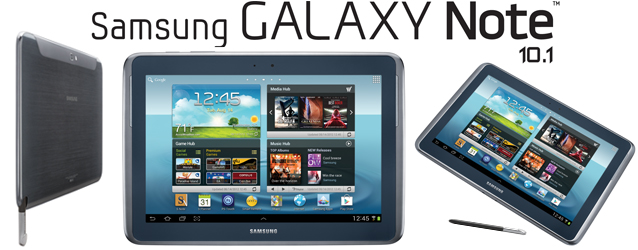
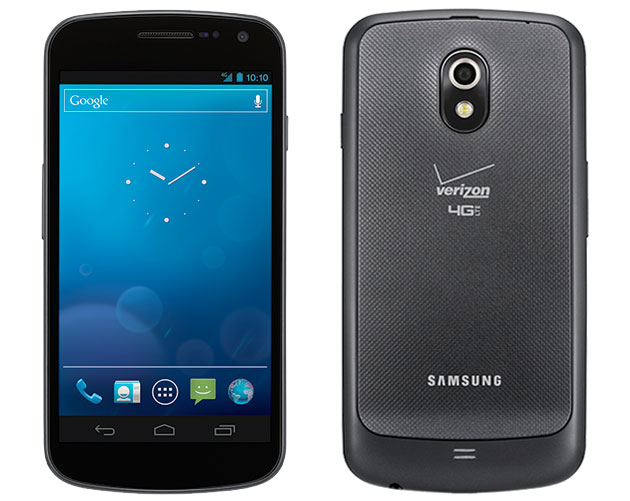




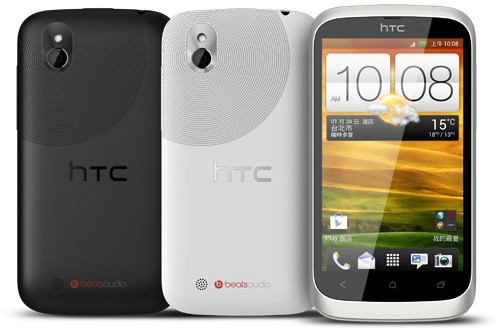

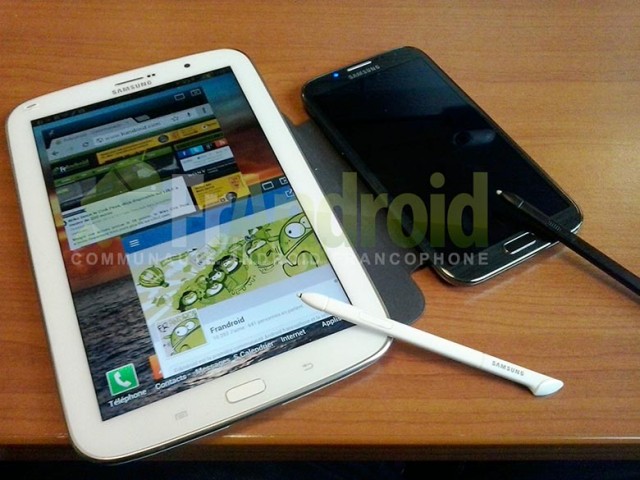
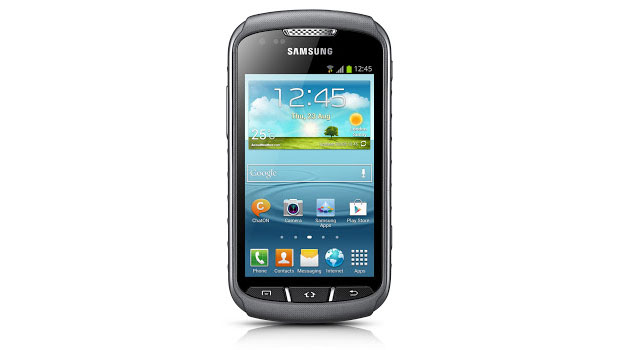


No comments:
Post a Comment